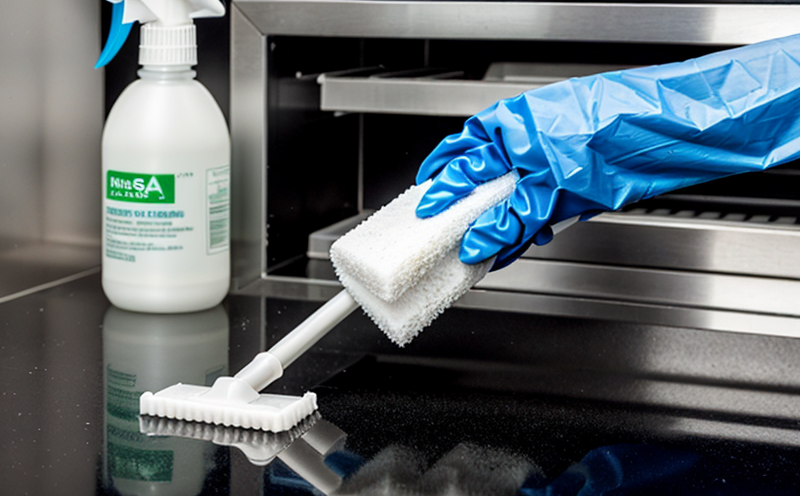ISO 20743 Antibacterial Activity Testing of Treated Plastic Surfaces
The ISO 20743 standard provides a comprehensive framework for assessing the antibacterial activity of treated plastic surfaces, ensuring that products meet stringent hygiene and health standards. This testing is crucial in sectors such as healthcare, food safety, and consumer goods where microbial contamination can pose significant risks to human health.
Our laboratory specializes in conducting ISO 20743-compliant tests, which involve the application of bacteria to treated plastic specimens under controlled conditions. The test measures the efficacy of these surfaces against specific bacterial strains over a defined period. This process not only ensures compliance with international standards but also helps manufacturers validate their products' performance.
The testing procedure involves several critical steps. Specimens are prepared according to ISO specifications, ensuring that they accurately represent real-world conditions. Following preparation, the specimens are exposed to various bacteria, and the antimicrobial activity is quantified using standardized methods. The results provide insights into the durability and effectiveness of the treatment over time.
Our expertise extends beyond mere compliance with standards; we also offer detailed reports that include recommendations for improvement based on the test outcomes. This comprehensive approach ensures that our clients receive not only a pass/fail result but also actionable insights to enhance their product offerings further.
The importance of this testing cannot be overstated, especially in environments where hygiene is paramount. By adhering to ISO 20743, manufacturers can demonstrate their commitment to public health and safety while maintaining competitive edge through innovation.
| Standard | Description |
|---|---|
| ISO 20743:2018 | Antibacterial activity of treated plastic surfaces |
This table highlights the specific standard that our laboratory adheres to, ensuring precision and reliability in all testing procedures.
The demand for hygienic products has surged globally, driven by increasing awareness about hygiene and safety. ISO 20743 testing is a key component of this trend, providing manufacturers with a robust framework to ensure their products meet the highest hygiene standards.
Applied Standards
The ISO 20743 standard specifies methods for determining the antibacterial efficacy of treated plastic surfaces. The testing protocol involves exposing the specimens to various bacterial strains and measuring the reduction in colony-forming units (CFUs) over time.
| Test Parameter | Description |
|---|---|
| Bacterial Strains | Staphylococcus aureus, Escherichia coli |
| Incubation Period | 24 hours |
| Testing Environment | 37°C ± 1°C |
The table above outlines the key parameters involved in the testing process, ensuring consistency and accuracy.
In addition to these technical aspects, our laboratory ensures that all tests comply with international standards. This adherence not only guarantees reliability but also enhances confidence among stakeholders.
Benefits
- Evidence of compliance with global hygiene standards.
- Enhanced product reputation and trustworthiness.
- Improved consumer confidence in hygienic products.
- Reduced risk of microbial contamination.
- Competitive advantage through innovation.
The benefits of ISO 20743 testing are manifold. By ensuring that products meet the highest hygiene standards, manufacturers can build a strong reputation and gain a competitive edge in the market. This testing also reduces the risk of product recalls and legal disputes due to health concerns.
Customer Impact and Satisfaction
The impact of ISO 20743 testing on customer satisfaction is profound. By demonstrating commitment to hygiene and safety, manufacturers can build a loyal customer base. This not only enhances brand reputation but also fosters trust among consumers.
In addition to increased customer loyalty, compliance with international standards also opens up new market opportunities. Many regions have strict regulations regarding the use of antibacterial materials in consumer products. By adhering to these standards, manufacturers can access a wider range of markets and expand their global footprint.
Our laboratory's expertise ensures that customers receive accurate and reliable test results. This not only meets regulatory requirements but also provides valuable insights for product development and improvement.





